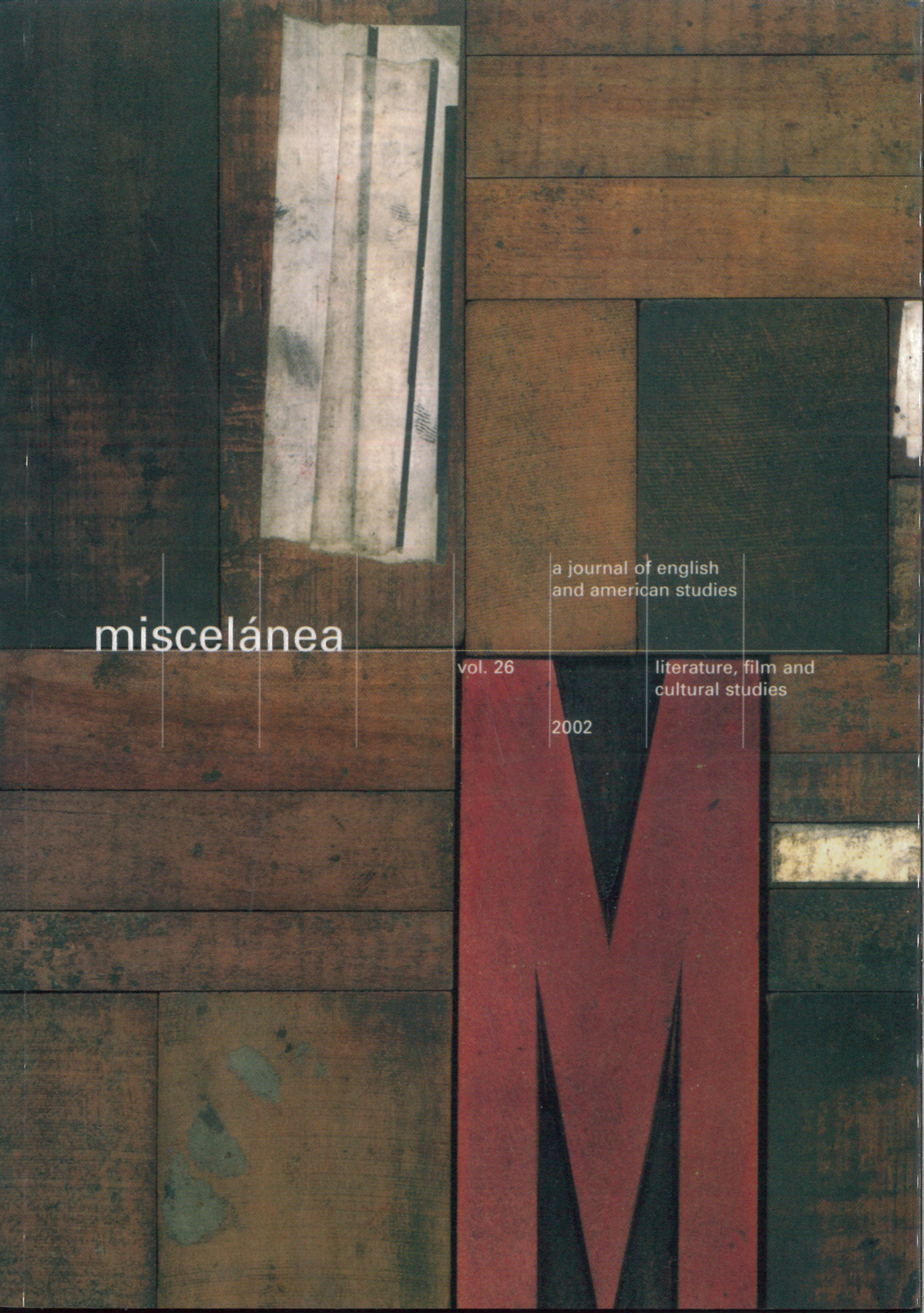‘Some of All of Us in You’: Intra-racial Relations, Pan-Africanism and Diaspora in Paule Marshall’s The Fisher King
DOI:
https://doi.org/10.26754/ojs_misc/mj.200210235Palabras clave:
Pan-Africanismo, Diáspora, Etnicidad, Migración, CaribeResumen
Aunque es el auge y la decadencia del jazz en la escena afroamericana y de los expatriados negros franceses lo que da forma a El rey pescador (2000), lo que realmente atrae la atención del lector en la última novela de la caribeña-estadounidense Paule Marshall es que vuelve a visitar su antiguo barrio de Brooklyn, Bedford-Stuyvesant, escenario de su primera novela, Brown Girl, Brownstones (1959). Tras recrear un ambiente con el que sus lectores están familiarizados, Marshall se adentra en un estudio mucho más profundo de las viejas desavenencias que siguen abriendo brecha en la comunidad negra multiétnica de Brooklyn -formada por negros "nativos", afrocaribeños e inmigrantes negros del Sur y sus descendientes- a mediados de la década de 1980. Además, por primera vez en su carrera como escritora, Marshall aborda el tema de las comunidades negras que viven en guetos europeos, sobre todo franceses. Así, sostengo que al centrarse en la diversidad y el conflicto dentro de las comunidades negras de los guetos estadounidenses y detenerse en sus homólogos europeos, El rey pescador completa la trayectoria de Marshall de ampliar y problematizar la noción del sujeto negro y su comunidad. Relaciono el posicionamiento de Marshall con los recientes debates sobre el panafricanismo y la diáspora protagonizados por críticos culturales como Paul Gilroy o Stuart Hall. Incluyendo en mi discusión otras novelas de la autora, reivindico El rey pescador como excelente compañera de Brown Girl, Brownstones, a través de la cual la carrera como escritora de Paule Marshall cierra el círculo.
Descargas
Referencias
BASCH, Linda et al. (eds.). 1994. Nations Unbound: Transnational Projects, Postcolonial Predicaments, and Deterritorialized Nation-States. Pennsylvania: Gordon and Breach.
BLAIR, Cynthia. 2003. “Bedford-Stuyvesant: Names of New York”. Newsday.com. On line. http://www.newsday.com/features/custom/na…fny-bedfordstuyvesant,0,296090.htmlstory/ (15-1-2003).
DAVIES, Carole Boyce and Elaine Savory FIDO. (eds.). 1990. Out of the Kumbla. Caribbean Women and Literature. New Jersey: Africa World Press.
COHEN, Robin. 1997. Global Diasporas. Seattle: University of Washington Press.
DANCE, Daryl. (ed.). 1986. Fifty Caribbean Writers. A Bio-Bibliographical Critical Sourcebook. New York: Greenwood Press.
DOMINGO, W. A. 1927. “Gift of the Black Tropics”. In Locke, Alain. (ed.). The New Negro. New York: Albert and Charles Boni: 341-349.
FONER, Nancy. 1979. “West Indians in New York and London: A Comparative Analysis”. International Migration Review 13.2: 284-297.
GIKANDI, Simon. 1992. Writing in Limbo: Modernism and Caribbean Literature. New York: Cornell U. P.
GILROY, Paul. 1999. The Black Atlantic. London: Verso.
—. 2001. Between Camps: Nations, Cultures and the Allure of Race. London: Penguin.
HALL, Stuart. 1994. “Cultural Identity and Diaspora”. In Williams, Patrick and Laura Chrisman. (eds.). Colonial Discourse and Post-Colonial Theory. New York: Columbia U.P.: 392-403.
HARRIS, Joseph. (ed.). 1993. Global Dimensions of the African Diaspora. Washington: Howard U. P.
HATHAWAY, Heather. 1999. Caribbean Waves. Indianapolis: Indiana U. P.
LÓPEZ ROPERO, M. Lourdes. 2003. “Travel Writing and Postcoloniality: Caryl Phillips’s The Atlantic Sound”. Atlantis 25.1: 51-62.
LYNCH, Kevin. 2001. “Saving the Family from Itself”. The Capital Times. 18 pars. On line. http://www.madison.com/captimes/books/topic/fiction/6302.php/(12-2- 2003).
MARSHALL, Paule. 1973. “Shaping the World of my Art”. New Letters 40.1: 97-112.
—. 1981 (1959). Brown Girl, Bronwnstones. New York: The Feminist Press.
—. 1983. Praisesong for the Widow. New York: Plume Fiction.
—. 1984 (1969). The Chosen Place, The Timeless People. New York: Vintage.
—. 1985. “Rising Islanders of Bed-Stuy”. The New York Times Magazine 3 Nov.: 67, 78, 80, 81, 82.
—. 1992 (1991). Daughters. New York: Plume Fiction.
—. 2000 (1999). The Fisher King. New York: Scribner.
NELSON, Emmanuel. 1999. Contemporary African American Novelists. A Bio-Bibliographical Critical Sourcebook. Connecticut: Greenwood Press.
OGUNDIPE, Molara. 1989. “Re-creating Ourselves All Over the World. An Interview with Paule Marshall”. Matatu 3.6: 24-38.
ROSE, Toby. 1999. “Crossroads are Our Roads: Paule Marshall’s Portrayal of Immigrant Identity Themes”. In Payant, Katherine B. and Toby Rose. (eds.). The Immigrant Experience in North American Literature. Westport: Greenwood Press: 109-121.
SAN JUAN, Epifanio. 1999. Beyond Postcolonial Theory. New York: San Martin’s Press.
SOLLORS, Werner. 1986. Beyond Ethnicity. New York: Oxford U. P.
STANDER, Bella. 2001. “A Conversation with Paule Marshall”. Interviews. 5 pars. On line. http://www.bellastander.com/writer/paule.htm/ (12-2-2003).
STEPHENS, Michelle. 1998. “Black Transnationalism and the Politics of National Identity: West Indian Intellectuals in Harlem in the Age of War and Revolution”. American Quarterly 50.3: 592-608.
WATKINS-OWENS, Imma. 1996. Blood Relations. Caribbean Immigrants and the Harlem Community, 1900-1930. Indianapolis: Indiana U. P.
Descargas
Publicado
Número
Sección
Licencia

Esta obra está bajo una licencia internacional Creative Commons Atribución-NoComercial 4.0.


